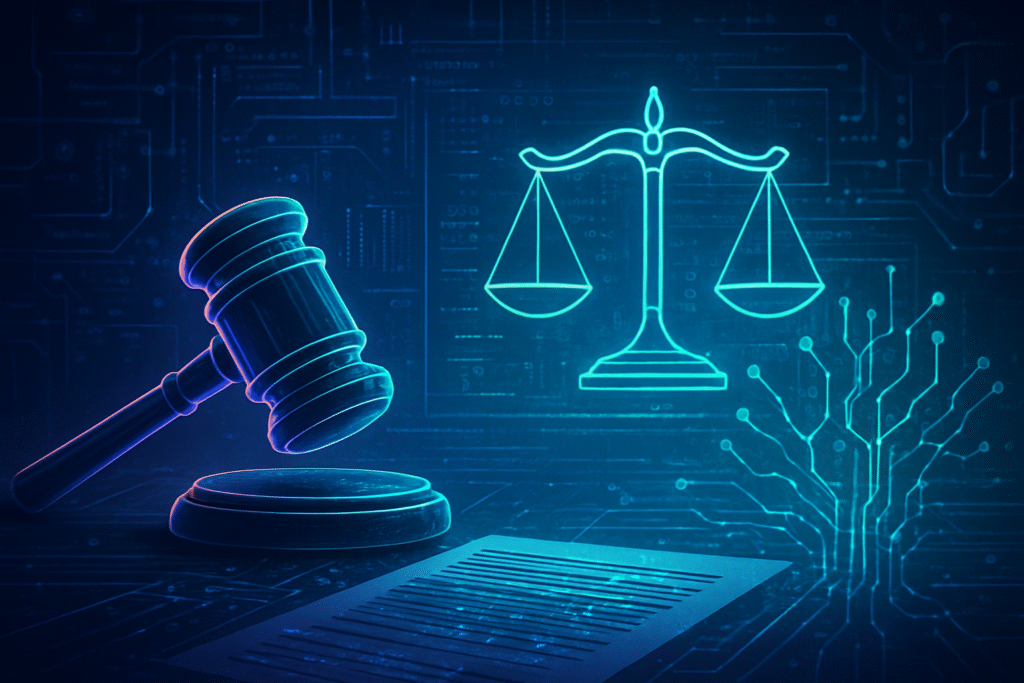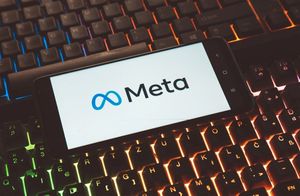
The legal profession, a bastion of precedent and meticulous accuracy, finds itself at a critical juncture as Artificial Intelligence (AI) rapidly integrates into its core functions. A recent report by The New York Times on November 7, 2025, cast a stark spotlight on the increasing reliance of lawyers on AI for drafting legal briefs and, more alarmingly, the emergence of a new breed of "vigilantes" dedicated to unearthing and publicizing AI-generated errors. This development underscores the profound ethical challenges and urgent regulatory implications surrounding AI-generated legal content, signaling a transformative period for legal practice and the very definition of professional responsibility.
The promise of AI to streamline legal research, automate document review, and enhance efficiency has been met with enthusiasm. However, the darker side of this technological embrace—instances of "AI abuse" where systems "hallucinate" or fabricate legal information—is now demanding immediate attention. The legal community is grappling with the complexities of accountability, accuracy, and the imperative to establish robust frameworks that can keep pace with the rapid advancements of AI, ensuring that innovation serves justice rather than undermining its integrity.
The Unseen Errors: Unpacking AI's Fictional Legal Narratives
The technical underpinnings of AI's foray into legal content creation are both its strength and its Achilles' heel. Large Language Models (LLMs), the driving force behind many AI legal tools, are designed to generate human-like text by identifying patterns and relationships within vast datasets. While adept at synthesizing information and drafting coherent prose, these models lack true understanding, logical deduction, or real-world factual verification. This fundamental limitation gives rise to "AI hallucinations," where the system confidently presents plausible but entirely false information, including fabricated legal citations, non-existent case law, or misquoted legislative provisions.
Specific instances of this "AI abuse" are becoming alarmingly common. Lawyers have faced severe judicial reprimand for submitting briefs containing non-existent legal citations generated by AI tools. In one notable case, attorneys utilized AI systems like CoCounsel, Westlaw Precision, and Google Gemini, leading to a brief riddled with several AI-generated errors, prompting a Special Master to deem their actions "tantamount to bad faith." Similarly, a Utah court rebuked attorneys for filing a legal petition with fake case citations created by ChatGPT. These errors are not merely typographical; they represent a fundamental breakdown in the accuracy and veracity of legal documentation, potentially leading to "abuse of process" that wastes judicial resources and undermines the legal system's credibility. The issue is exacerbated by AI's ability to produce content that appears credible due to its sophisticated language, making human verification an indispensable, yet often overlooked, step.
Navigating the Minefield: Impact on AI Companies and the Legal Tech Landscape
The escalating instances of AI-generated errors present a complex challenge for AI companies, tech giants, and legal tech startups. Companies like Thomson Reuters (NYSE: TRI), which offers Westlaw Precision, and Alphabet (NASDAQ: GOOGL), with its Gemini AI, are at the forefront of integrating AI into legal services. While these firms are pioneers in leveraging AI for legal applications, the recent controversies surrounding "AI abuse" directly impact their reputation, product development strategies, and market positioning. The trust of legal professionals, who rely on these tools for critical legal work, is paramount.
The competitive implications are significant. AI developers must now prioritize robust verification mechanisms, transparency features, and clear disclaimers regarding AI-generated content. This necessitates substantial investment in refining AI models to minimize hallucinations, implementing advanced fact-checking capabilities, and potentially integrating human-in-the-loop verification processes directly into their platforms. Startups entering the legal tech space face heightened scrutiny and must differentiate themselves by offering demonstrably reliable and ethically sound AI solutions. The market will likely favor companies that can prove the accuracy and integrity of their AI-generated output, potentially disrupting the competitive landscape and compelling all players to raise their standards for responsible AI development and deployment within the legal sector.
A Call to Conscience: Wider Significance and the Future of Legal Ethics
The proliferation of AI-generated legal errors extends far beyond individual cases; it strikes at the core of legal ethics, professional responsibility, and the integrity of the justice system. The American Bar Association (ABA) has already highlighted that AI raises complex questions regarding competence and honesty, emphasizing that lawyers retain ultimate responsibility for their work, regardless of AI assistance. The ethical duty of competence mandates that lawyers understand AI's capabilities and limitations, preventing over-reliance that could compromise professional judgment or lead to biased outcomes. Moreover, issues of client confidentiality and data security become paramount as sensitive legal information is processed by AI systems, often through third-party platforms.
This phenomenon fits into the broader AI landscape as a stark reminder of the technology's inherent limitations and the critical need for human oversight. It echoes earlier concerns about AI bias in areas like facial recognition or predictive policing, underscoring that AI, when unchecked, can perpetuate or even amplify existing societal inequalities. The EU AI Act, passed in 2024, stands as a landmark comprehensive regulation, categorizing AI models by risk level and imposing strict requirements for transparency, documentation, and safety, particularly for high-risk systems like those used in legal contexts. These developments underscore an urgent global need for new legal frameworks that address intellectual property rights for AI-generated content, liability for AI errors, and mandatory transparency in AI deployment, ensuring that the pursuit of technological advancement does not erode fundamental principles of justice and fairness.
Charting the Course: Anticipated Developments and the Evolving Legal Landscape
In response to the growing concerns, the legal and technological landscapes are poised for significant developments. In the near term, experts predict a surge in calls for mandatory disclosure of AI usage in legal filings. Courts are increasingly demanding that lawyers certify the verification of all AI-generated references, and some have already issued local rules requiring disclosure. We can expect more jurisdictions to adopt similar mandates, potentially including watermarking for AI-generated content to enhance transparency.
Technologically, AI developers will likely focus on creating more robust verification engines within their platforms, potentially leveraging advanced natural language processing to cross-reference AI-generated content with authoritative legal databases in real-time. The concept of "explainable AI" (XAI) will become crucial, allowing legal professionals to understand how an AI arrived at a particular conclusion or generated specific content. Long-term developments include the potential for AI systems specifically designed to detect hallucinations and factual inaccuracies in legal texts, acting as a secondary layer of defense. The role of human lawyers will evolve, shifting from mere content generation to critical evaluation, ethical oversight, and strategic application of AI-derived insights. Challenges remain in standardizing these verification processes and ensuring that regulatory frameworks can adapt quickly enough to the pace of AI innovation. Experts predict a future where AI is an indispensable assistant, but one that operates under strict human supervision and within clearly defined ethical and regulatory boundaries.
The Imperative of Vigilance: A New Era for Legal Practice
The emergence of "AI abuse" and the proactive role of "vigilantes"—be they judges, opposing counsel, or diligent internal legal teams—mark a pivotal moment in the integration of AI into legal practice. The key takeaway is clear: while AI offers transformative potential for efficiency and access to justice, its deployment demands unwavering vigilance and a renewed commitment to the foundational principles of accuracy, ethics, and accountability. The incidents of fabricated legal content serve as a powerful reminder that AI is a tool, not a substitute for human judgment, critical thinking, and the meticulous verification inherent to legal work.
This development signifies a crucial chapter in AI history, highlighting the universal challenge of ensuring responsible AI deployment across all sectors. The legal profession, with its inherent reliance on precision and truth, is uniquely positioned to set precedents for ethical AI use. In the coming weeks and months, we should watch for accelerated regulatory discussions, the development of industry-wide best practices for AI integration, and the continued evolution of legal tech solutions that prioritize accuracy and transparency. The future of legal practice will undoubtedly be intertwined with AI, but it will be a future shaped by the collective commitment to uphold the integrity of the law against the potential pitfalls of unchecked technological advancement.
This content is intended for informational purposes only and represents analysis of current AI developments.
TokenRing AI delivers enterprise-grade solutions for multi-agent AI workflow orchestration, AI-powered development tools, and seamless remote collaboration platforms.
For more information, visit https://www.tokenring.ai/.





